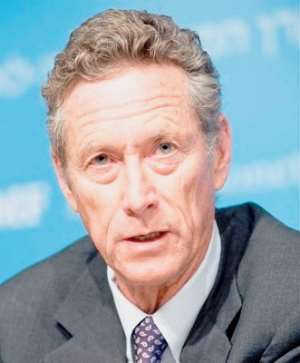
Mr. Olivier Blanchard, the International Monetary Fund's chief economist
The global recovery from recession has begun but a delicate rebalancing of economies is needed to ensure its sustainability, the International Monetary Fund's (IMF) chief economist has said.
'The recovery has started. Sustaining it will require delicate rebalancing acts, both within and across countries,' Olivier Blanchard said in an IMF article, released in advance of publication.
Blanchard cautioned that predictable models based on past recoveries from recessions will not apply to the worst global slump in seven decades.
'The world is not in a run-of–the mill recession. The turnaround will not be simple. The crisis has left deep scars, which will affect both supply and demand for many years to come,' he said.
The top economist at the 186-nation institution noted that in a typical battle against recession, the central bank lowers interest rates, which results in increased demand and output, and often a decline in the value of the currency boosts exports by making them cheaper.
'The lower-than-normal growth during the recession gives way to higher-than-normal growth for some time, until the economy has returned to its normal growth path, 'Blanchard said.
'The current global recession is far from normal, 'he said, citing the breakdown in parts of the economic system.
'In advanced countries, the financial systems are partly dysfunctional, and will take a long time to find their new shape,' he wrote in the article, titled 'Sustaining a Global Recovery'.
Emerging market countries may not see dwindled capital inflows return to pre-crisis levels for a few years.
As consumption shifts from advanced to emerging economies, changes may be required in the structure of production.
'In nearly all countries, the costs of the crisis have added to the fiscal burden, and higher taxation is inevitReuters.able.'
The end result of the global crisis: possibly a permanently lower potential output, he said.
Blanchard said the IMF's upcoming latest edition World Economic Outlook would cover 88 banking crises over the past four decades in wide range of countries.
'While there is large variation across countries, the conclusion is that, on average, output does not go back to its old trend path, but remains permanently below it,' he said.




 Akufo-Addo did not order Overlord of Gonjaland to rise and greet him- Richard Ah...
Akufo-Addo did not order Overlord of Gonjaland to rise and greet him- Richard Ah...
 Many girls sleep with dogs for money — Mona Gucci
Many girls sleep with dogs for money — Mona Gucci
 Ejisu by-election: No election is small, easy but NPP will win — Frimpong Kodua
Ejisu by-election: No election is small, easy but NPP will win — Frimpong Kodua
 No president can take credit for constructing a road in Ghana; they’re taxpayers...
No president can take credit for constructing a road in Ghana; they’re taxpayers...
 Prof. Jane Naana has shaken Ghana's political foundation, causing NPP to run hel...
Prof. Jane Naana has shaken Ghana's political foundation, causing NPP to run hel...
 I've been receiving threats after I commended NPP for completing school projects...
I've been receiving threats after I commended NPP for completing school projects...
 Bawumia is ready to debate Mahama any day – Frederick Opare-Ansah
Bawumia is ready to debate Mahama any day – Frederick Opare-Ansah
 Register births at CHPS compounds; don't come to Accra – Birth & Death Registrar...
Register births at CHPS compounds; don't come to Accra – Birth & Death Registrar...
 We never said only 10 BVDs were auctioned – EC replies IMANI
We never said only 10 BVDs were auctioned – EC replies IMANI
 Election 2024: Akufo-Addo willing to trample on Ghana’s constitution – Mahama
Election 2024: Akufo-Addo willing to trample on Ghana’s constitution – Mahama
